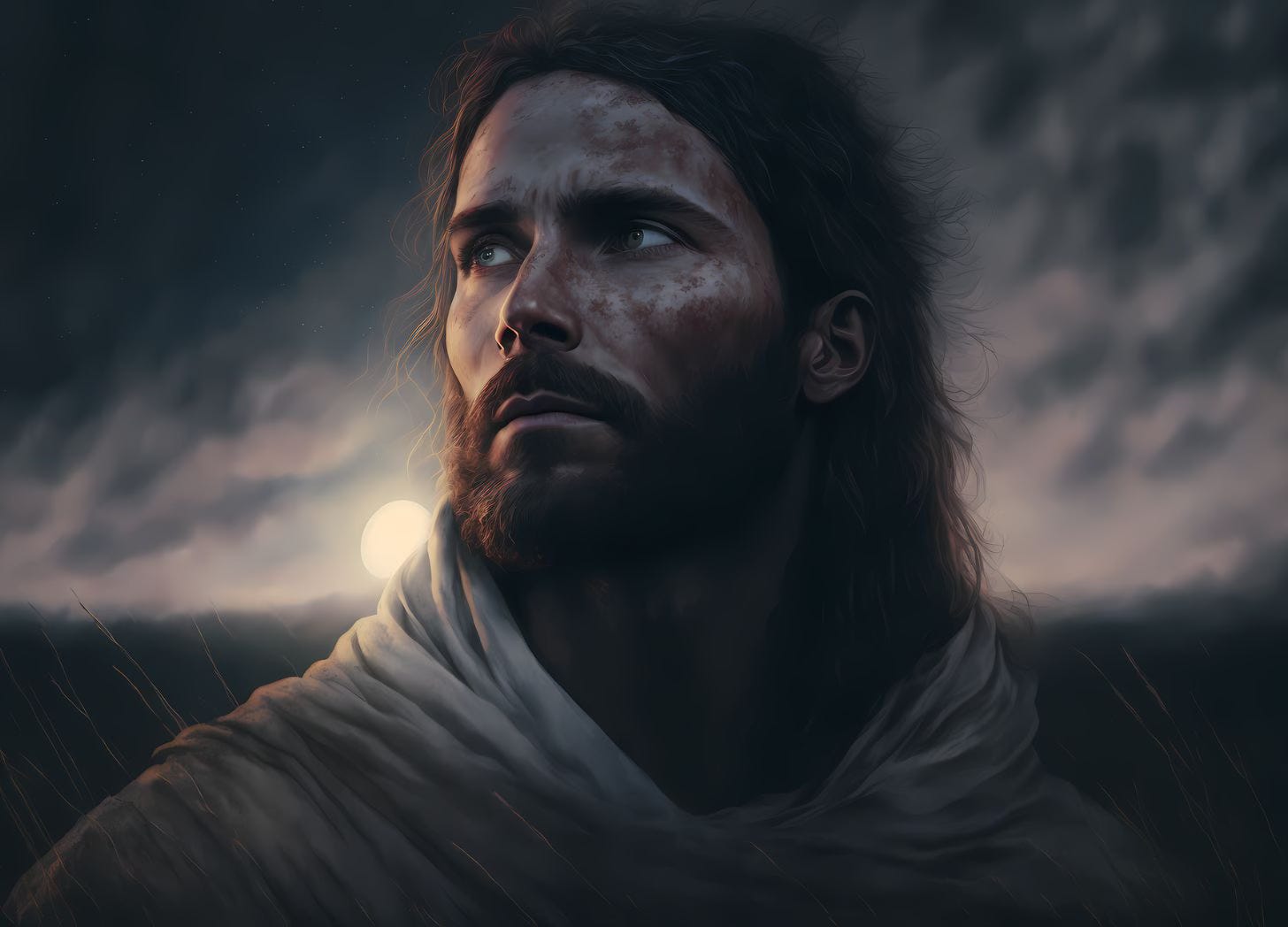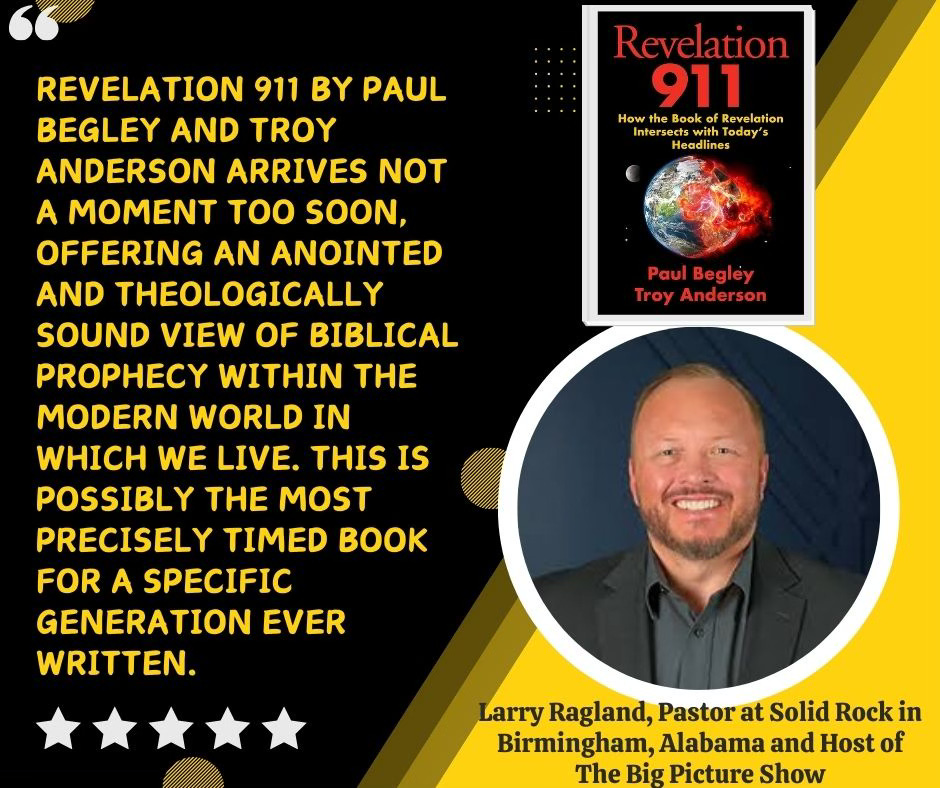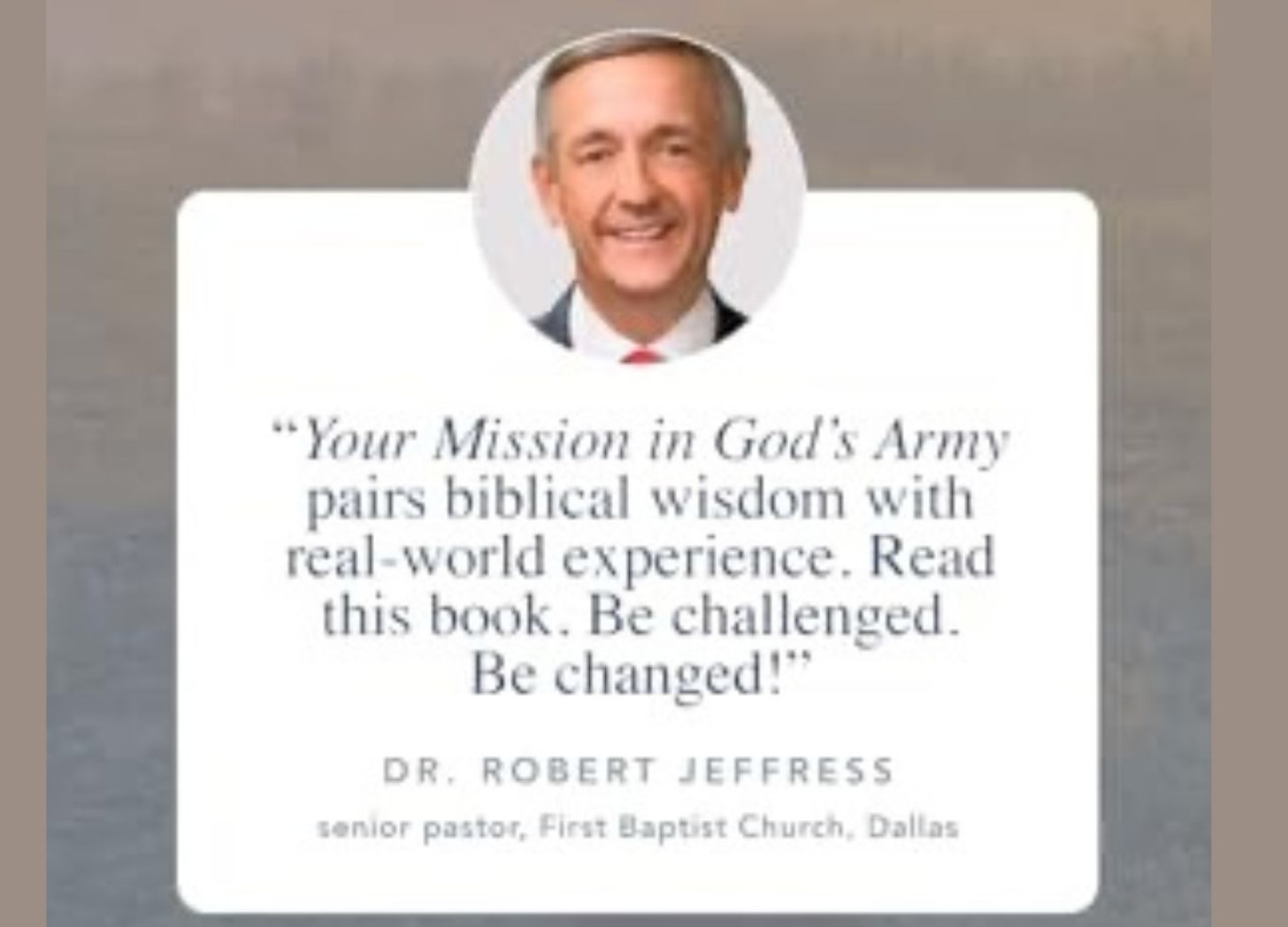Barabbas: The Enigmatic Figure in the Passion Narrative
By Michael E. Wheelon, Revelation Watchers Contributor
Revelation Watchers is a reader-supported publication. If you enjoy our articles and Pastor Paul Begley’s The Coming Apocalypse show, consider becoming a supporter. You will receive access to read in-depth articles, watch exclusive interviews and partner in our mission.
The New Testament is a complex collection of stories, but one character stands out as both mysterious and pivotal: Barabbas. His brief appearance during the trial of Jesus has profound implications, resonating throughout history and theology. In this article, we will delve into the life of Barabbas, explore his exploits, and draw parallels with the story of Jesus.
Who Was Barabbas?
Barabbas is mentioned in all four Gospels, namely Matthew, Mark, Luke, and John. His name reverberates through the pages of Scripture, leaving an indelible mark on the Passion narrative. Here are the key passages that introduce us to this intriguing figure:
Matthew 27:16:
“At that time, they were holding a notorious prisoner, called Barabbas.”
Mark 15:7 states,
“The man named Barabbas had been imprisoned with the insurrectionists who had murdered in the insurrection.”
Luke 23:18:
“But they cried out all together, saying, ‘Away with this man, and release for us Barabbas!’”
John 18:40:
“So they cried out again, saying, ‘Not this Man, but Barabbas.’ Now Barabbas was a robber.”
Barabbas’ Crimes and Context
Barabbas was not just a criminal but a notorious one. His name was synonymous with rebellion, murder, and robbery. But what led to his imprisonment? The Gospels provide some insights:
Barabbas was likely a Zealot, a member of a radical Jewish movement that vehemently opposed Roman rule. Zealots engaged in guerrilla warfare, seeking to overthrow the oppressive occupiers.
Mark and Luke specifically mention that Barabbas was imprisoned with rebels who had murdered during an insurrection. His hands were stained with blood, and his actions had consequences.
During the Passover season in ancient Jerusalem, the air crackled with anticipation. Amidst the swirl of religious fervor and political tension, a unique custom unfolded—an annual tradition that intersected with the life of a man named Barabbas.
The Custom
On the eve of every Passover, the Roman governor faced a peculiar request from Jewish leaders: Releasing a prisoner. This singular act of clemency was not arbitrary; it was woven into the fabric of the festival. But why? What lay behind this custom?
Our knowledge of this custom primarily stems from the New Testament accounts. Beyond these biblical references, historical records remain silent. The secular and religious literature of the time offers no direct evidence. Scholars grapple with the need for more information, leading to divergent theories.
📚 Exciting news! Pre-order your copy of Revelation 911: How the Book of Revelation Intersects with Today’s Headlines by Pastor Paul Begley and Troy Anderson now! 🌟 Delve into the prophetic insights and unravel the mysteries of the Book of Revelation like never before. Be prepared for a journey that will deepen your understanding of biblical prophecy and its relevance to our world today. Pre-order now and be among the first to receive this transformative book! 📖 #Revelation911 #PreorderNow #BiblicalProphecy
The Hypotheses
Roman Benevolence:
Some propose that the custom originated with the Roman procurators of Judaea. They enacted it to appease the Jews, demonstrating empathy during their sacred Passover. In this view, the practice was a mere gesture of goodwill.
Greek and Roman Influence:
Others look beyond Judaea’s borders. They draw parallels with Greek and Roman festivals. For instance:
Panathenaic and Thesmophoria: These Greek festivals allowed amnesty for criminals.
Roman Lectisternia: During these Roman festivals, prisoners received reprieve.
According to this theory, Herod the Great introduced this practice into Israel, and subsequent Roman governors followed a familiar path.
Jewish Origin: A third perspective asserts that the custom had Jewish roots. It may have stretched back to Old Testament days. In this view, releasing a prisoner on the eve of Passover was an established institution within Israel.
The Choice: Barabbas or Jesus?
Now, let us enter the dramatic scene at Pilate’s judgment seat. The crowd, stirred by religious leaders, faced an unprecedented choice: Barabbas or Jesus. Pilate, aware of their envy, presented the two options. The crowd’s decision would echo through eternity.
Barabbas: The crowd clamored for Barabbas. His release symbolized earthly rebellion, a desperate attempt to throw off Roman shackles.
Jesus: The Innocent One, accused falsely, stood before them. His blood would soon be spilled, not for His sins but for humanity’s salvation.
Parallel with Jesus
The parallels between Barabbas and Jesus are striking:
Names: Both men shared the name Jesus. Barabbas, perhaps ironically, bore the same name as the Saviour.
Choice: Humanity faced a choice—Barabbas or Jesus. The crowd’s decision mirrored our own: temporal solutions versus divine redemption.
Substitution: Barabbas, deserving of punishment, walked free. Jesus, sinless, took his place. The innocent exchanged for the guilty—a foreshadowing of the Cross.
Historical Significance
Barabbas’ release has fueled centuries of debate and theological reflection. Some have wrongly blamed the Jews, citing Matthew 27:25. However, modern scholars emphasize that the crowd represented humanity, not just Jewish authorities. Jesus’ blood reconciled us to God, not seeking vengeance.
The Inner Life of Barabbas
After his unexpected release, what happened to Barabbas? The Gospels remain silent, but we can imagine the turmoil within him:
Freedom and Guilt: Barabbas, once condemned to die, was now free. But at what cost? His freedom came at the expense of an innocent man’s life.
Indeed, the parallel between Barabbas and our own spiritual condition is profound. Just as Barabbas was a condemned man, we, too, were once lost and headed toward spiritual death due to our sins. But in an act of divine grace, Jesus took our place. His sacrifice on the cross became the ultimate substitution, offering forgiveness and redemption to all who believed.
Barabbas, the insurrectionist and murderer, represents humanity’s brokenness and rebellion against God. Yet, when Pilate released him, it symbolized the exchange that would occur through Christ’s sacrifice. Jesus, the sinless Son of God, willingly bore our guilt and shame, taking the punishment we deserved. His death became our liberation, just as Barabbas walked free.
In this powerful narrative, we find hope and transformation. Like Barabbas, we stand before the choice: accept the gift of salvation through Jesus or reject it. May we recognize our need for a Savior and embrace the love that led Jesus to the cross.
Michael E. Wheelon, a retired GG-14, held distinguished roles in security, counterintelligence, and special program oversight at the Special Access Programs Division, Headquarters Air Force Space Command, Peterson Air Force Base, Colorado Springs, Colorado. Previously, as a Senior Master Sergeant (SMSgt) in the Air, Space, and Cyber Directorate, Space Superiority Division, he supervised Counterspace Operations at Peterson Air Force Base. With a military career spanning 31 countries and seven deployments, Wheelon fulfilled critical roles, including heavy weapons operator, high-frequency voice communications operator, ground station operator for high-valued space platforms, and signals intelligence instructor. He holds a Bachelor of Science in Computer Information and Networking Operations from Chapman University and a master’s certification in Executive Leadership from the University of Notre Dame, along with several certifications such as the Senior Command Management Civilian Certification Course and the Secretary of the Air Forces’ Program Security Officer (PSO) Certification Course. Wheelon's accolades include numerous Airman and NCO of the Year awards and a Finalist nomination for the USAF's 12 Outstanding Airmen of the Year. Following retirement, he teaches at a Bible College in Black Mountain, North Carolina, and contributes to Paul Begley Ministries. Outside his professional pursuits, Wheelon enjoys drumming, backpacking, skiing, ice climbing, and spending time with his wife, Shelley, and their dog, Boo
A Prayer for “Barabbas: The Enigmatic Figure in the Passion Narrative”
Dear Heavenly Father,
In contemplating the enigmatic figure of Barabbas within the Passion narrative, we are drawn into the complexities of human nature and divine grace. Barabbas, a character shrouded in mystery yet pivotal to the events surrounding Jesus' crucifixion, invites us to explore themes of rebellion, redemption, and the ultimate substitutionary sacrifice.
As we delve into the New Testament accounts, we encounter a man whose name echoes through history, his brief appearance leaving an indelible mark on the narrative of Jesus' final hours. Through the lens of Scripture, we uncover Barabbas' crimes and context, his release on the eve of Passover, and the dramatic choice presented to the crowd—Barabbas or Jesus. This pivotal moment in the Passion narrative invites reflection on the parallels between Barabbas and Jesus, the significance of their names, and the profound theological implications of Jesus' substitutionary sacrifice for humanity's redemption.
As we contemplate Barabbas' unexpected freedom and the inner turmoil it may have provoked, we are reminded of our own spiritual condition and the transformative power of Christ's sacrifice on the cross. Just as Barabbas stood before the choice of acceptance or rejection, so too do we stand before the offer of salvation through Jesus Christ. May we, like Barabbas, recognize our need for a Savior and embrace the love that led Jesus to lay down His life for us.
In Jesus' precious name we pray, Amen.
📺 Let the revelation unfold! Watch Revelation 911 Book Trailer!
As Pastor Paul Begley suggests, secure 5 copies of Revelation 911 by he and Pulitzer Prize-nominated investigative journalist Troy Anderson. Reserve one for yourself—the cherished first edition. Generously distribute the remaining four to your family, your parents, brothers, sisters, children, good friends, and church. Keep in mind, once shared, they may not return, so you want to get 5 copies. Join us in spreading the message and inviting more Christ followers into God's Kingdom.
🔮 Pre-order 5 copies of Revelation 911 today! 🔮
📚 Sneak a peek into the upcoming mind-bender, Revelation 911, by Pastor Paul Begley and Troy Anderson, co-founders of Revelation Watchers. We're connecting the dots between global shake-ups, political alliances, and the unfolding biblical saga. Pre-order now! Revelation 911, already a #1 “Best Seller” and #1 “Hot New Release” on Amazon, is set to release on March 26, 2024, unlocking the secrets of our world through the lens of ancient scriptures.
🔮 Pre-order your copy of Revelation 911 today! 🔮
Discover Col. David Giammona and Troy Anderson’s dynamic book series, including their latest, Your Mission in God's Army, as well as the first two books in the series, the #1 Chosen Books bestsellers The Military Guide to Armageddon and The Military Guide to Disarming Deception, and equip yourself for service in God’s end-times army of warriors helping bring in what Pastor Paul Begley calls the “Great Harvest Revival.” Join the mission, seize the calling – your destiny awaits! 📚🌟 #YourMissionInGodsArmy, #OrderNow
Get ready for a transformative journey of faith with Your Mission in God's Army. Discover and fulfill your unique purpose before Christ's return in this powerful paperback, releasing on April 16 from Chosen Books/Baker Publishing Group. Pre-order now and equip yourself with the spiritual tools needed to become a victorious soldier in God's plan for the world.
🔮 Pre-order your copy of Your Mission in God’s Army today! 🔮
📚 Do You Dream of Becoming a Bestselling Author? Contact the Inspire Literary Group: Crafting Exceptional Books 🌟
Link: Inspire Literary Group







